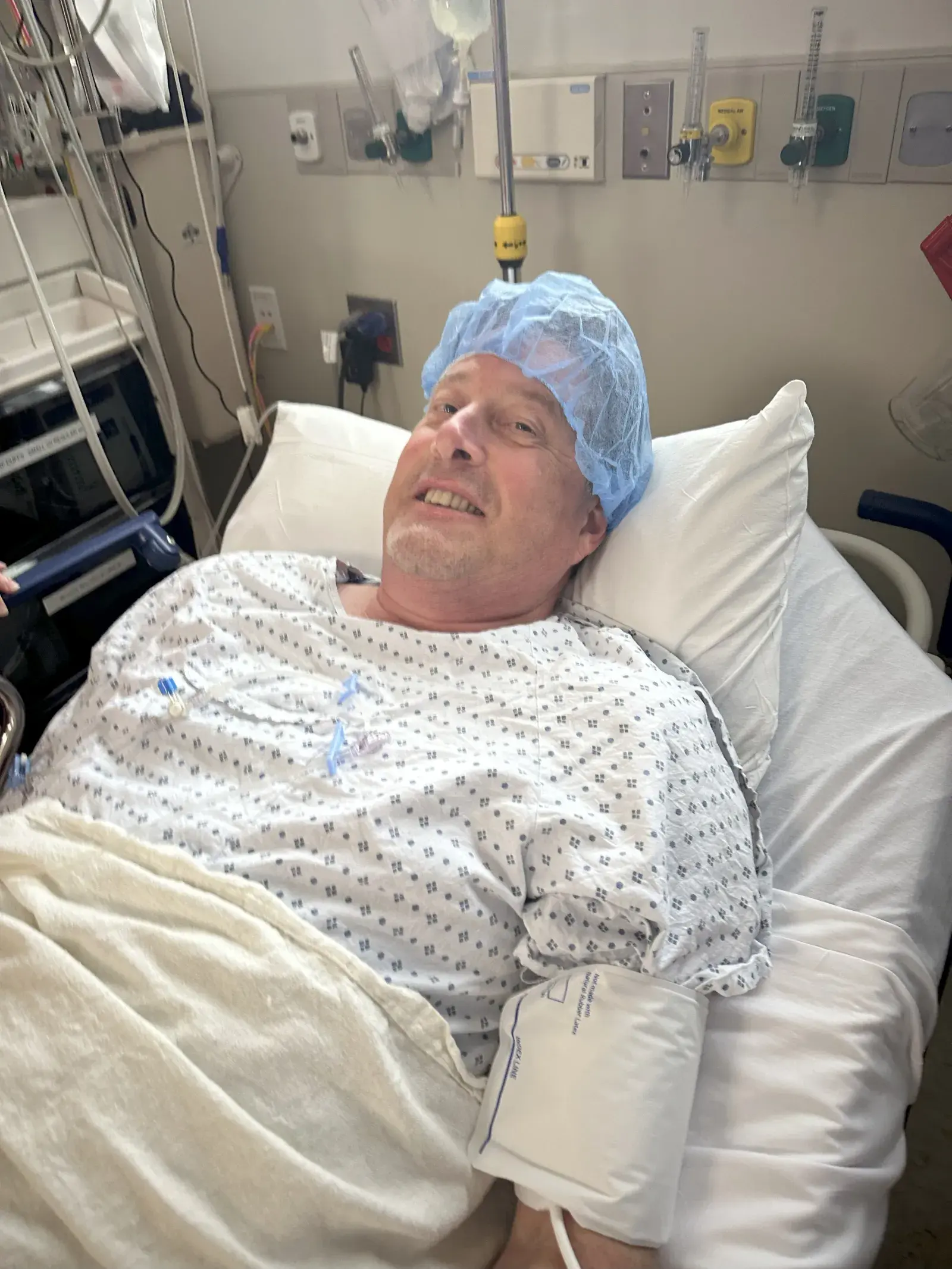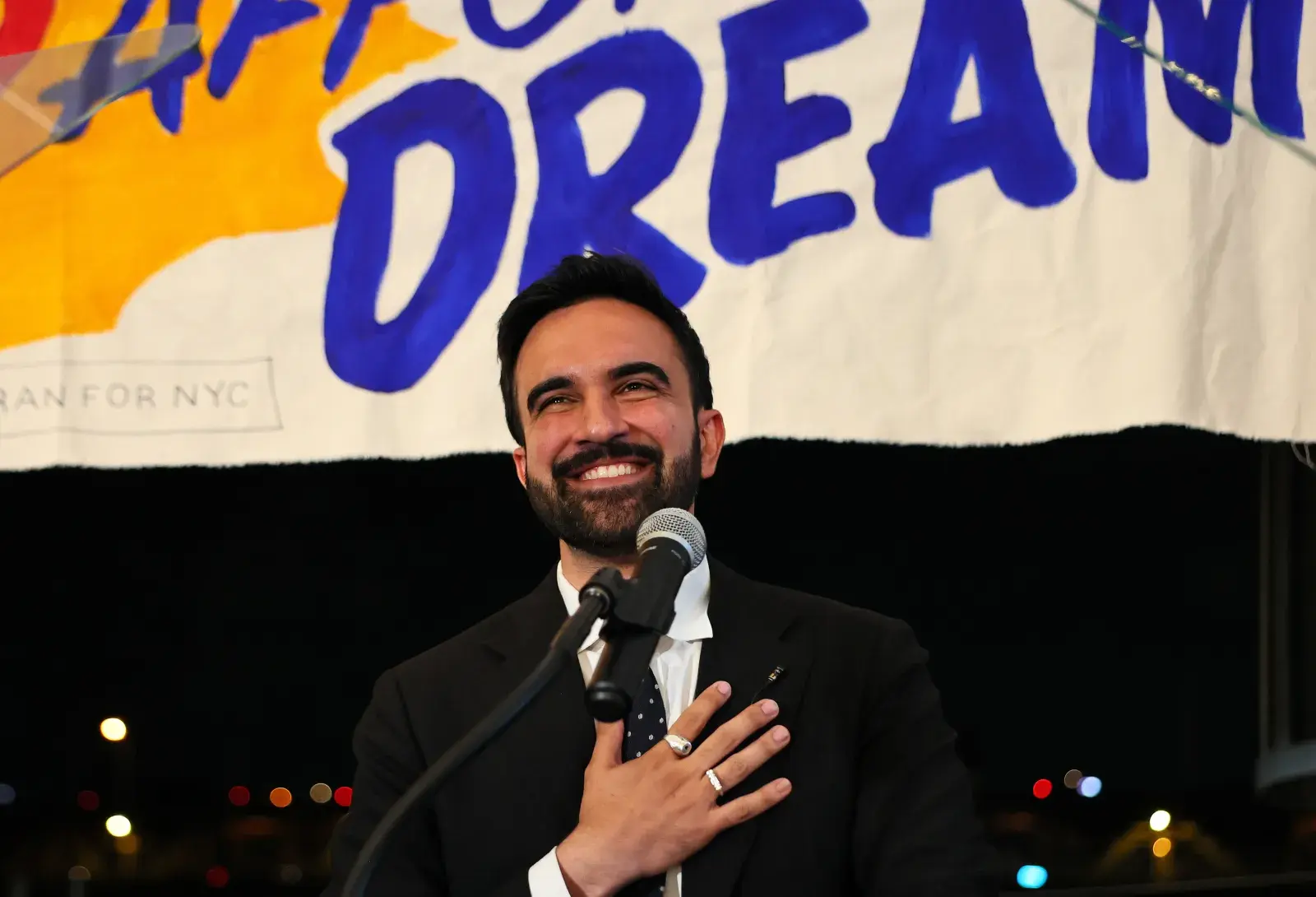It started as a perfect date night. My husband had just retired a few weeks earlier, and we were celebrating a night out at a hockey game. We’re huge Washington Capitals fans and got incredibly lucky that night as we witnessed Alexander Ovechkin tie the NHL goal-scoring record. It was one of those unforgettable nights where everything feels exactly right.
But hours later, everything changed. Back at our hotel, my husband doubled over in pain. We assumed it was food poisoning from something he’d eaten at the arena. As the night stretched on and the pain got worse, it became clear this wasn’t going to pass. At 3 a.m., I drove him to the emergency room.
The doctor’s first suspicion was appendicitis, so they ordered a CT scan. Appendicitis seemed like bad luck, but also something we knew could be fixed. We were bracing ourselves for surgery and recovery when a nurse delivered words that made the room spin: “And you know about the large tumor on your left kidney, right?”
We did not.

In an instant, the relief of a routine appendectomy gave way to shock. The scan meant to confirm appendicitis had revealed something far more threatening: a massive kidney tumor. While the appendix could be removed that morning, the tumor would require an entirely different battle.
We later learned that about 50 percent of kidney cancers are discovered by accident, according to the Mayo Clinic, often during imaging for something unrelated. Unlike some cancers, kidney tumors can grow quietly, with no obvious warning signs until they’ve advanced.
My husband’s tumor was very large, classified as stage 3. Without that sudden burst of appendix pain, we might not have known until it was too late. As strange as it sounds, appendicitis likely saved his life.
What happened after the diagnosis only deepened our sense that something bigger was at play. Months earlier, I had interviewed the head of cancer research for the V Foundation on my podcast. In desperation, I reached out to her, and she urged us to go to Johns Hopkins, which has one of the best kidney cancer programs in the world and is only an hour and a half away from us.

It was late on a Friday afternoon when we called Hopkins’ central scheduling and were given an appointment for the following Wednesday. When I Googled the doctor, my jaw dropped — he is one of the leading specialists in the world.
When we arrived for the appointment, he asked how we had managed to get in to see him so quickly. He explained that he wasn’t even listed in the scheduling system, and his patients are seen by referral. We had no referral. No one had pulled any strings for us. Yet somehow, there we were, sitting across from him.
Then came the twist that still gives me chills. The doctor explained that surgery usually takes a month or two to schedule. But right before he walked into our appointment, he was notified of a cancellation for Friday, two days away. If we wanted it, the slot was ours.
We took it without hesitation.
Within two weeks of that terrifying ER visit, my husband’s kidney — and the tumor — were gone. The pathology report brought the news we had been praying for: The cancer had not spread, and his margins were clear. Today, he is undergoing immunotherapy to help prevent recurrence.
Looking back, the chain of events — the appendicitis, the podcast connection, the impossible appointment, the miraculous cancellation — feels almost too extraordinary to be a coincidence. I’m not sure what to call it, but it felt like a hand guiding us through the chaos.
Retirement now looks different from what we imagined. Instead of leisurely bucket-list trips, we’ve shifted toward savoring the ordinary. Morning walks. Movie nights. Visiting friends. FaceTime calls with our kids. Even sitting together in the stands at a sporting event feels sacred in a way it didn’t before.

The irony is hard to ignore: The season we thought would begin with freedom began with fear. Instead of planning adventures, we were learning to live with uncertainty. And yet, in that uncertainty, the small joys have become more precious.
When I share this story, people are often stunned that something as small as appendicitis revealed something so life-threatening. That’s why I feel compelled to tell it.
Kidney cancer — and many other cancers — can grow in silence. Routine scans, tests for unrelated issues, and even fluke medical events may be the reason someone survives. If you’re ever advised to get imaging, don’t delay. That “extra” test might uncover something you never knew was there.
Life after a diagnosis is complicated. It is equal parts gratitude and fear. We’re thankful for the chance appendicitis gave us, grateful for the doctors who caught it in time, but we also live with the anxiety of recurrence, the waiting for each new scan, the fragility of the future.
It isn’t neat or tidy. It’s messy, ongoing and real.
Even so, I know this: Without that hockey game, that late-night stomach pain, and the string of impossible events that followed, my husband’s story might have ended very differently. Instead, we’ve been given a second chance.
We’re learning to live with that knowledge — to embrace uncertainty, to stay present, and to recognize how quickly life can change. And if there’s one thing I hope others carry from our experience, it’s this: Sometimes the detours you never wanted — even an inflamed appendix — can end up saving your life.
Christina Daves is a TV lifestyle contributor and the host of the award-winning podcast "Living Ageless and Bold," which features inspiring stories of women over 50. A freelance writer, bestselling author and speaker, she champions the power of midlife as a time to thrive, reinvent and boldly pursue what’s next.
All views expressed in this article are the author's own.
Do you have a personal essay you want to share with Newsweek? Send your story to MyTurn@newsweek.com.





















